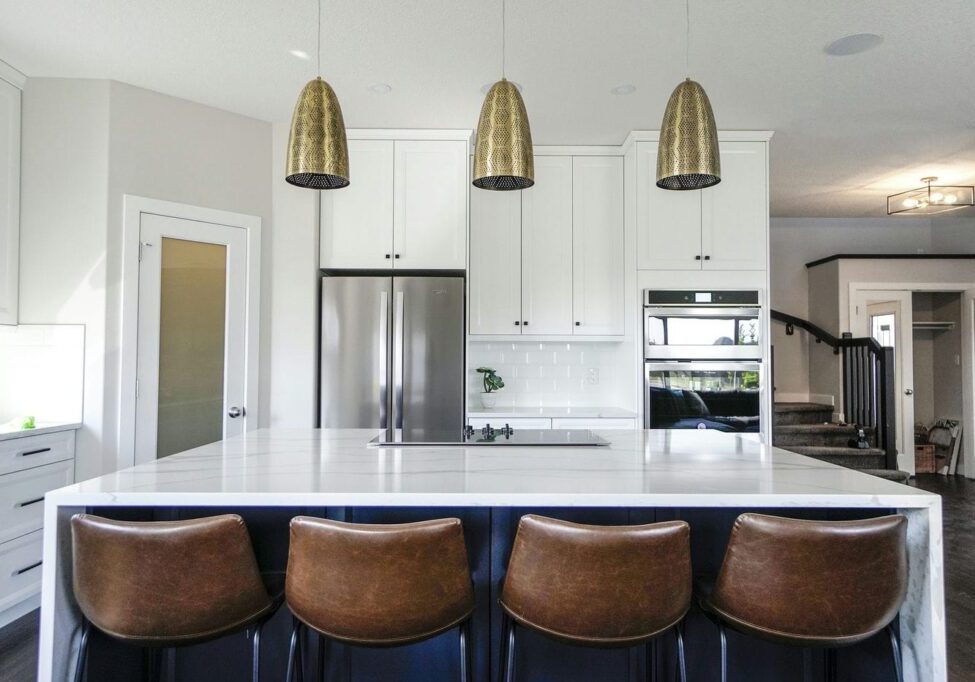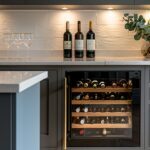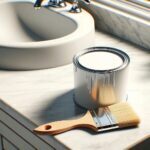Comparing Kitchen Countertops: A Comparison of Materials and Durability

Countertops are the unsung heroes of our kitchens, serving as both functional workspaces and aesthetic centerpieces. The type of countertop you choose can influence not only the design but also the functionality and longevity of your kitchen. Beyond the visual appeal, it’s crucial to consider factors like durability, maintenance requirements, cost, and overall value when selecting the perfect material for your space.
While there’s no one-size-fits-all solution, understanding the unique properties and benefits of each material can guide homeowners in making a decision that aligns with their lifestyle and design preferences.
Granite Countertops
Granite, a natural stone formed under immense heat and pressure, boasts a distinctive elegance with its unique patterns. Each slab carries its distinct veining and colors, ensuring that no two granite countertops are identical. Its dense nature makes it highly resistant to heat, making it an ideal surface for kitchens.
However, while granite is undoubtedly durable, it’s not invulnerable. It can chip or crack upon heavy impact and requires occasional sealing to maintain its lustrous appearance and prevent stains. Nevertheless, when maintained correctly, granite countertops can elevate a kitchen’s aesthetic while offering excellent longevity.
Quartz Countertops
Quartz countertops are the beautiful results of engineering, comprised of crushed quartz particles and robust resin. Their non-porous nature keeps stains at bay, making them a favorite for homeowners who prioritize low maintenance. Moreover, their design flexibility means they can be tailored to a variety of color preferences and aesthetics.
In terms of durability, quartz stands tall, offering resistance similar to natural stones. However, extreme heat can compromise its integrity, so it’s always recommended to use heat protectors or trivets.
Marble Countertops
The timeless beauty of marble has graced homes for centuries. Its pristine and luxurious appearance can make any kitchen feel regal. The natural patterns and veining in marble lend a unique touch to each countertop.
However, marble’s porous nature makes it susceptible to stains, especially from acidic substances like citrus or wine. Regular sealing can help, but careful maintenance is crucial. While marble can withstand heat, it can etch, so immediate clean-up of spills is essential.
Laminate Countertops
Laminate countertops are often lauded for their budget-friendly nature and design versatility. Modern laminate can convincingly mimic the appearance of pricier materials like granite or wood. They’re lightweight, making installation a breeze, and resist stains fairly well.
The downside? Laminate is susceptible to heat and can warp or discolor when exposed to hot pots and pans. Moreover, scratches and cuts are often irreparable, requiring homeowners to tread with caution.
Soapstone Countertops
Soapstone, with its smooth feel and distinctive gray hue, provides a serene and sophisticated touch to kitchens. As a non-porous stone, it resists stains beautifully and boasts impressive heat resistance.
While durable in many aspects, soapstone is softer than granite or quartz, meaning it can scratch over time. Regular oiling enhances its appearance and deepens its color, adding to its rustic charm.
Butcher Block Countertops
For a warm, organic touch to the kitchen, many homeowners gravitate towards butcher block countertops. Made from straight cuts of wood glued together, these countertops offer a tactile, inviting surface.
However, they demand attention in terms of maintenance. Regular sealing or oiling is essential to prevent water damage and to maintain their luster. Being wood, they’re also susceptible to scratches and dents but can be sanded down and refinished for a fresh look.
Stainless Steel Countertops
Championing a modern, industrial aesthetic, stainless steel countertops are as functional as they are stylish. They resist heat, water, and bacteria, making them a hygienic choice for culinary enthusiasts.
On the flip side, they can scratch and dent over time. Regular cleaning is essential to prevent water spots and maintain their shiny appearance.
Concrete Countertops
Customization is the hallmark of concrete countertops. They can be stained, pigmented, and textured to suit any design palette. In terms of durability, concrete is solid, holding up well against heat and daily wear.
Yet, it’s not without flaws. Concrete can develop cracks over time, and its porous nature requires regular sealing to fend off stains.
Recycled Glass Countertops
If sustainability ranks high on your priorities, recycled glass countertops are worth considering. Comprising crushed glass set in resin or concrete, these countertops are colorful, unique, and eco-friendly.
While their appearance is undoubtedly striking, they can chip at the edges. However, their overall durability is commendable, resisting both stains and heat efficiently.
Making an Informed Choice with Sultacon
Every kitchen countertop material brings its strengths and challenges to the table. Ultimately, the right choice hinges on individual preferences, usage patterns, and budget constraints. Whether you lean towards the classic allure of marble or the contemporary edge of stainless steel, ensuring proper maintenance will enhance its lifespan and beauty.
For homeowners in the GTA looking to transform their kitchen with precision and expertise, Sultacon stands as the premier kitchen renovation contractor. Backed by years of experience and an unwavering commitment to quality, Sultacon ensures every kitchen they touch is both functional and visually stunning. Contact us, and let your countertops be the highlight of your culinary sanctuary.




